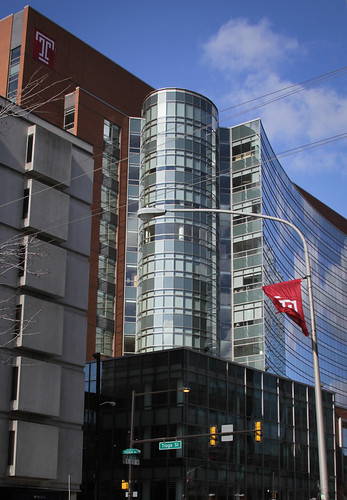
In the first month of the New Year, Philadelphia experienced 25 murders, including that of alumnus Kevin Kless on Jan. 14 in Old City.
Philadelphia CeaseFire, based at the medical school’s Center for Bioethics, Urban Health and Policy, seeks to reduce the number of shootings and killings in the 22nd district of North Philadelphia.
Ceasefire, which has been in operation for six months, is a structured and disciplined violence intervention program, developed in Chicago and based on the premise that violence is a public health issue and can be prevented. The program at the university is a duplicate of the evidence based CeaseFire Chicago public health model.
Director of Philadelphia CeaseFire and the Center for Bioethics, Urban Health and Policy Marla Bellamy said. “Our approach is community driven.”
“We want to let communities and residents know that these acts of violence are not acceptable,” Bellamy added.
To achieve this goal, CeaseFire believes in five core components that echo the Chicago-based model: community outreach, community mobilization, public education, faith-based involvement and criminal justice participation.
“Our outreach team is composed of four workers, who are actually ex-offenders,” Bellamy said. “Once a part of the problem, they are now engaged with us to be part of the solution.”
Philadelphia CeaseFire’s outreach team patrols the streets of the 22nd District, identifying individuals between the ages of 14- to 25-years-old who are involved in high-risk street activity and are interested in turning their lives around. With those they are able to recruit, CeaseFire’s outreach team assists in finding possible job and employment opportunities for these individuals.
Outreach workers are challenged to build strong and reliable trust with those that they encounter.
Bellamy said that workers receive 40 hours of training, with additional training throughout the year at the program’s other sites in Chicago and Brooklyn, N.Y.
Often block captains of communities will report to outreach workers about issues building up between rival gangs or neighboring youth.
“One of the things that we are working towards is getting our faced-based leaders engaged and involved,” Bellamy said. “People are afraid, but we’re asking leaders from churches and other places within communities to become more actively involved with us.”
Philadelphia CeaseFire is also attempting to strengthen relationships with youth.
Bellamy said that there is a point where the city has “to embrace the fact that we have a problem,” and that police cannot solve the issue of violence by themselves.
Philadelphia has already experienced 21 days of violence and murders in the New Year. Kevin Kless, a 2010 alumnus, was killed Jan. 14 after being beaten on the steps of the Second Bank of the United States on Chestnut Street in Old City.
“I think as a whole, Philadelphia has a high crime rate everywhere,” said Tim Waltman, a sophomore criminal justice major. “But as far as the university goes I feel that the police are doing a good job in making it a safe place.”
Mayor Michael Nutter spoke at a Kensington anti-violence rally at Bethel Temple Community Jan. 15, where he assured those gathered that the trend of ongoing violence could be reversed.
“I’m not really sure how one would go about fixing crime in this city,” freshman advertising major Matt Kozar said. “I’m kind of against gun control because you’re going to be able to get [guns] no matter what.”
One of the methods used to increase awareness of Philadelphia CeaseFire among community members is hosting a Shooting Response Event. A vigil conducted at the site of a shooting within 72 hours of the incident.
On Jan. 15, Philadelphia CeaseFire participated in one of their shooting response events in reply to the shooting and killing of a 19-year-old.
“We had spent time with his father, who had said he was unfortunately with the wrong people,” Bellamy said. “People from area churches and residents attended and we marched and prayed.”
Dominique Johnson can be reached at dominique.johnson@temple.edu.


Be the first to comment